Are you ready to dive into the world of power purchase agreements? These documents are essential for securing reliable energy sources and navigating the complexities of energy supply. Understanding the ins and outs of a power purchase agreement can be daunting, but it's crucial for both businesses and renewable energy projects. If you're curious to learn more about how to craft an effective letter template for these agreements, keep reading!
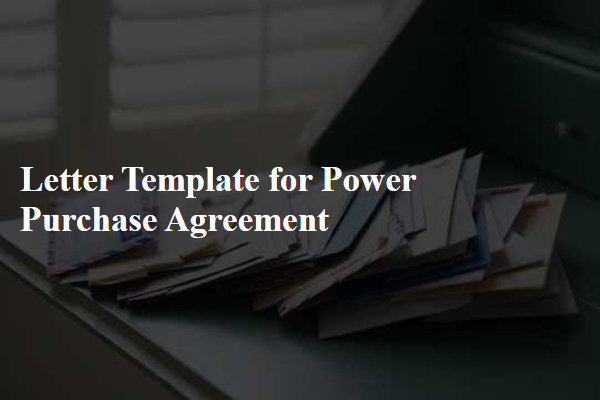
Contractual Terms and Conditions
A Power Purchase Agreement (PPA) outlines critical terms and conditions essential for the procurement of energy. The contract typically includes a Purchase Price, which specifies the cost per kilowatt-hour (kWh) of produced power, often varying with market rates or escalations based on inflation. The Contract Duration, often ranging from 10 to 25 years, establishes the period over which the seller must provide power to the buyer. Performance Guarantees ensure that the energy generation meets agreed benchmarks, typically expressed in Megawatt (MW) terms. Renewable Energy Certificates (RECs) may be included, representing verification of energy sourced from renewable methods, crucial for compliance with local environmental regulations. Termination Clauses outline circumstances under which parties may prematurely end the agreement, often referencing default events such as bankruptcy or failure to deliver energy consistently. The Governing Law section designates jurisdiction, often reflecting the U.S. state laws or international regulations guiding the contract. Lastly, confidentiality provisions safeguard sensitive information exchanged during negotiations, critical in maintaining competitive advantages.
Payment and Pricing Structures
The Payment and Pricing Structures outlined in a Power Purchase Agreement (PPA) refer to the terms that govern how and when payments are made for the electricity supplied. Generally, the pricing mechanism can be classified into fixed rates, where the buyer pays a set amount per kilowatt-hour (kWh) consumed, or variable rates, which fluctuate based on market prices and demand, often tied to indices such as the Energy Information Administration (EIA) monthly average. Additionally, terms such as capacity payments, which account for the readiness to supply power even when not in use, can be included. The agreement specifies billing cycles, typically monthly, along with due dates for payments. Late payment penalties and methods of dispute resolution related to payment discrepancies are essential considerations that ensure clarity and prevent misunderstandings between parties involved, such as the electricity provider, which could be a renewable energy entity, and the purchasing entity, such as a municipal utility or large commercial consumer.
Energy Supply and Delivery Specifications
A Power Purchase Agreement (PPA) outlines specific terms regarding energy supply and delivery, ensuring efficient commitment between buyer and seller. Energy supply specification details the quantity (measured in megawatt-hours) of electricity generated, typically agreeing on an annual volume, and also includes peak demand periods (usually defined in kilowatts during specific hours). Delivery specifications stipulate the method of transmission, often via interconnected grids such as the North American grid, and identify the point of interconnection where the electricity transfers from the generator to the buyer's facility. Additionally, it states the frequency of electricity delivery, usually in real-time or through scheduled intervals, ensuring reliability and consistency. The agreement may also address penalties for non-compliance and methods for adjusting terms in response to regulatory changes or market fluctuations.
Termination and Renewal Clauses
Termination and renewal clauses within a power purchase agreement (PPA) are crucial elements that outline the conditions under which the agreement may be terminated before its expiration and the options available for extending its duration. The termination clause specifies events or conditions--such as breach of contract, failure to deliver agreed-upon energy outputs, or force majeure events--that allow one or both parties to terminate the agreement without incurring penalties. These events can involve natural disasters like hurricanes or floods disrupting energy production. The renewal clause, on the other hand, details the process for extending the agreement upon its expiration, including notice periods that may vary generally from 30 to 90 days, and any conditions or modifications to the terms that must be negotiated. The renewal process may also involve an evaluation of current market rates for electricity, such as the average price for kilowatt-hours in local energy markets, ensuring that both parties benefit from potentially favorable terms.
Regulatory Compliance and Standards
A power purchase agreement (PPA) outlines the regulatory compliance and standards necessary for successful energy transactions between buyers and sellers. Compliance with national energy regulations, such as the Federal Energy Regulatory Commission (FERC) guidelines or state-level utility laws, is crucial for ensuring lawful contract execution. Moreover, adherence to reliability standards set by organizations like the North American Electric Reliability Corporation (NERC) ensures grid stability and security. Additionally, environmental standards mandated by agencies such as the Environmental Protection Agency (EPA) play an important role in regulating emissions, thus impacting costs and fulfillment of renewable energy credits. Each party must understand and align with local laws governing energy sales, permitting processes, and interconnection agreements, which may vary significantly across states like California, Texas, or New York. Understanding these requirements mitigates legal risks and enhances operational transparency.

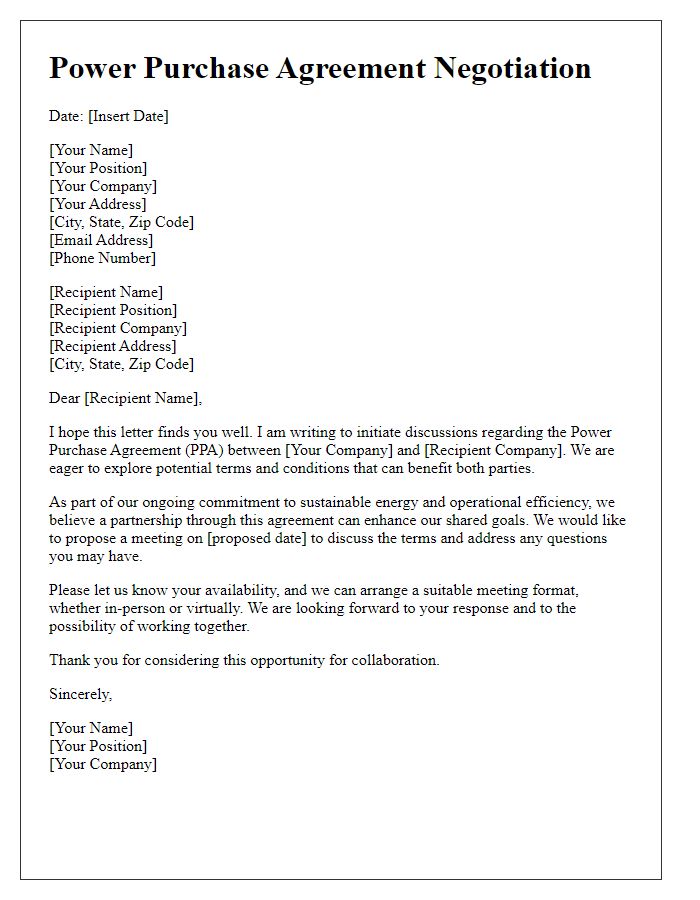
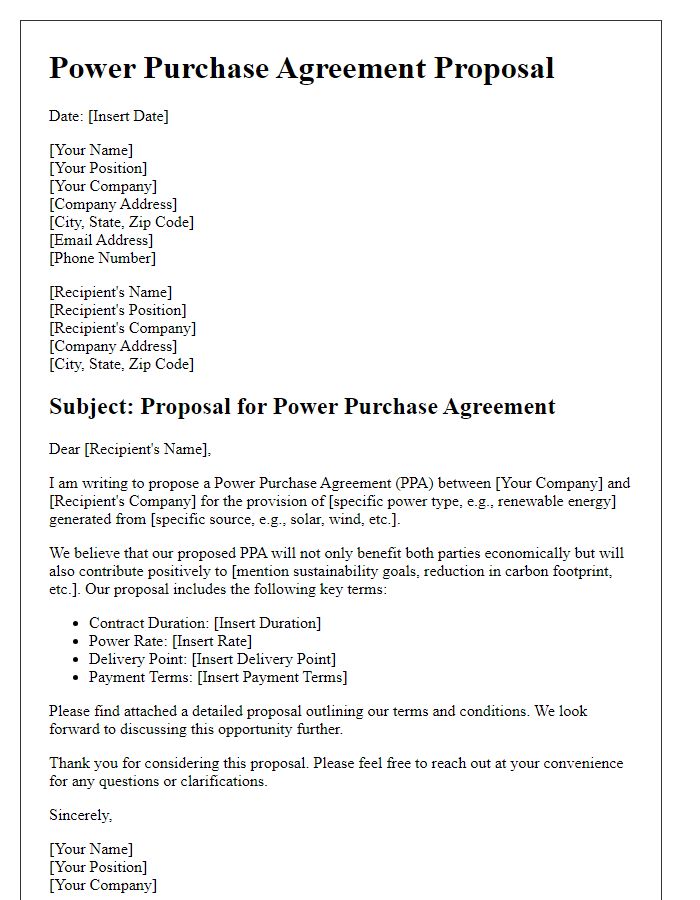
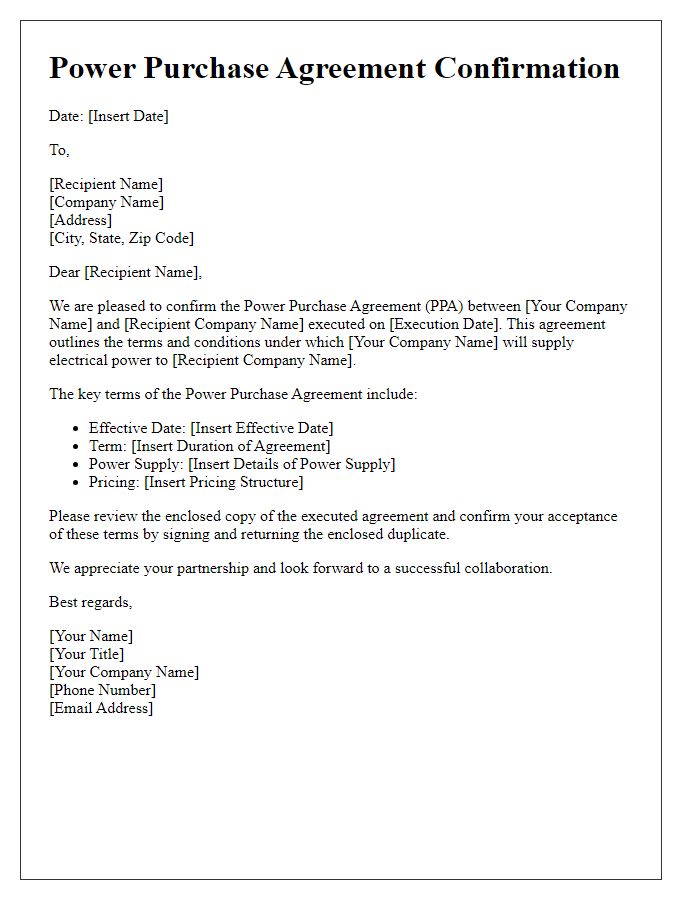
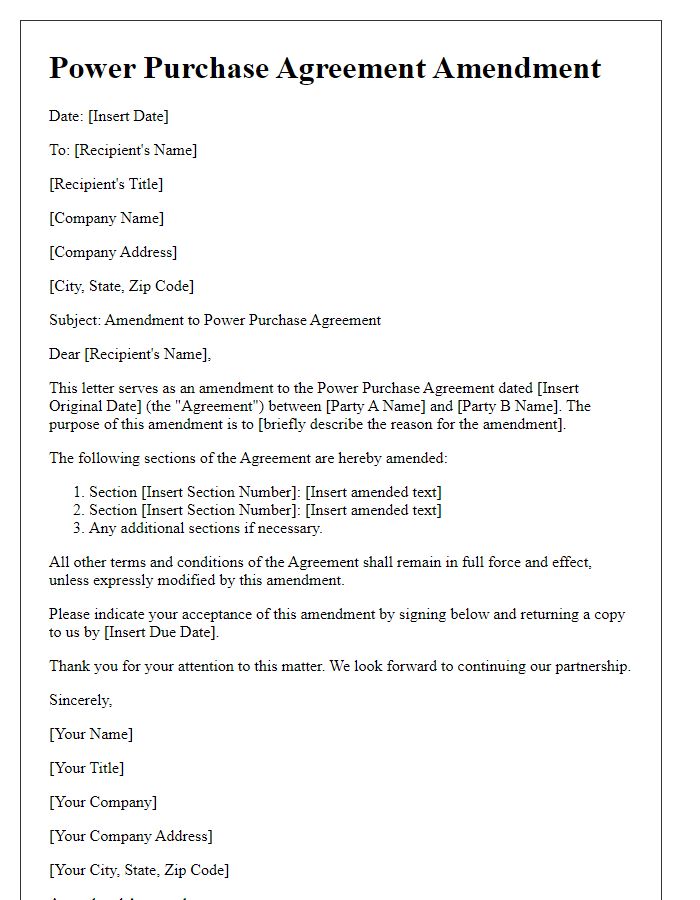
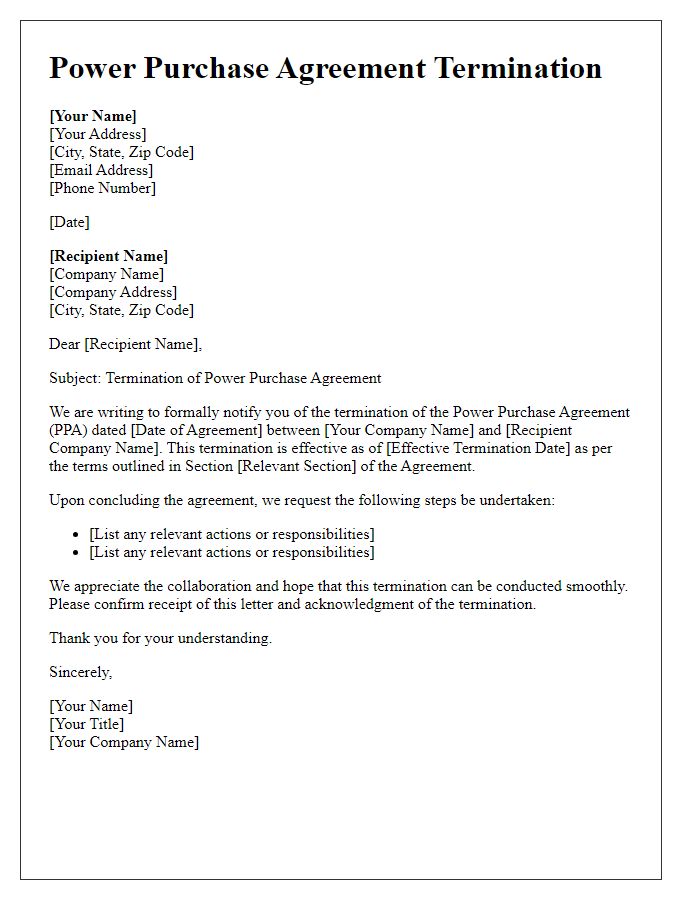
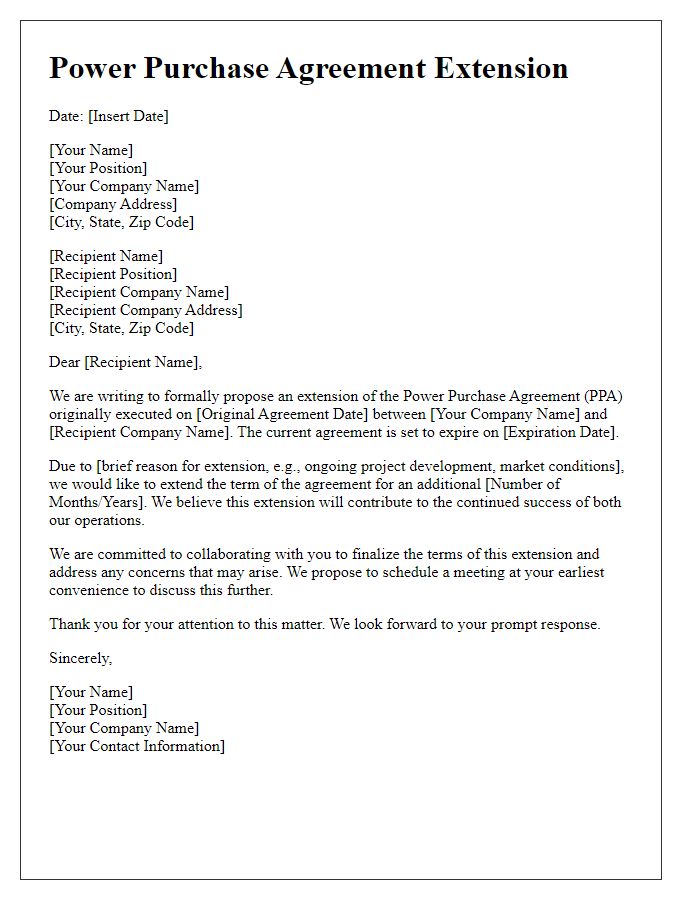
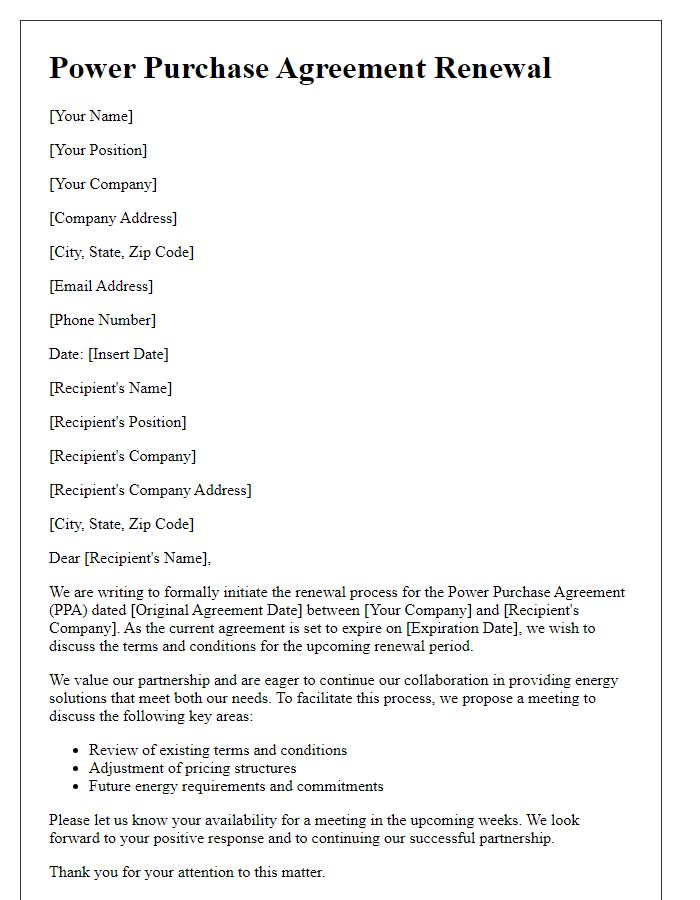
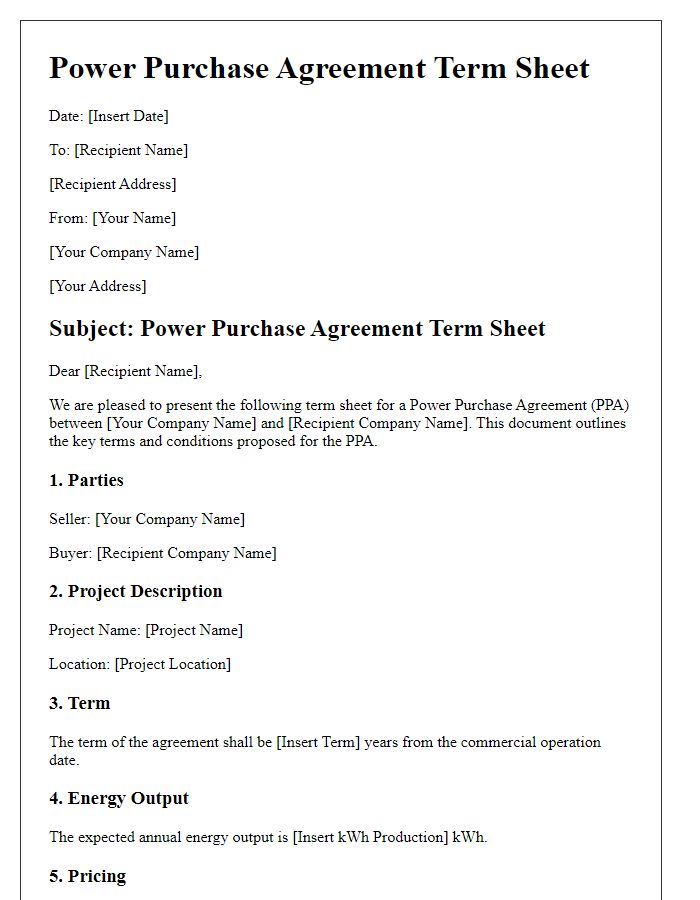
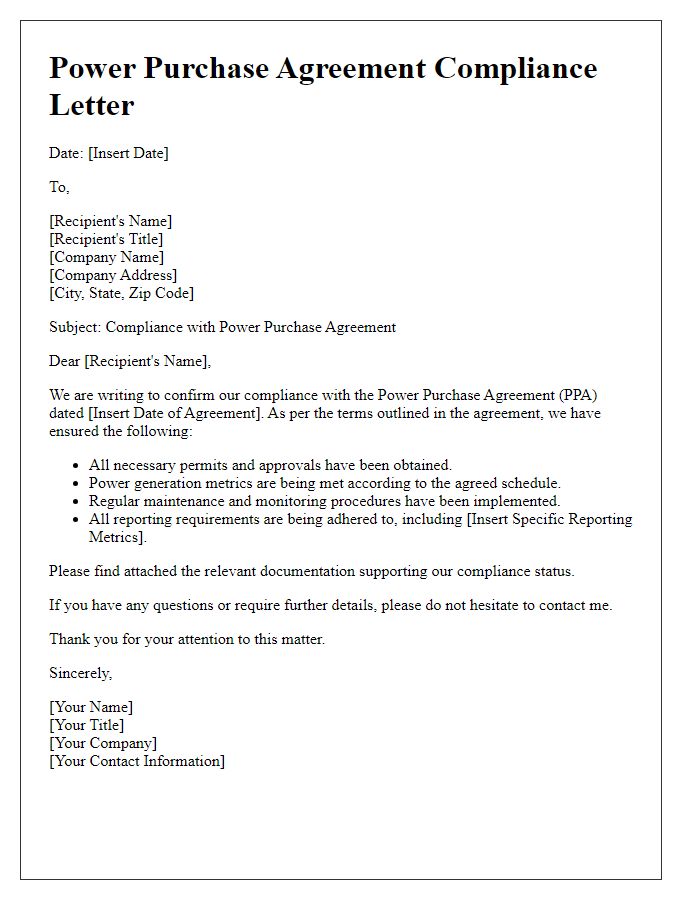
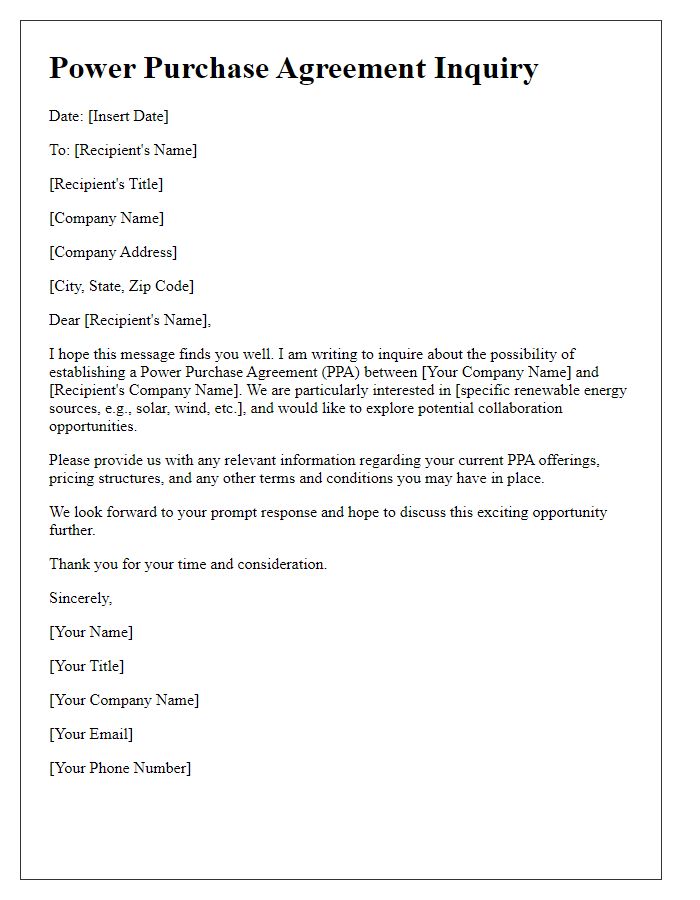


Comments